Key Information
Course Format: Distance learning, assessment only - encouraging independent, adult-centred, self-directed learning
Enrolment: July - September
Assessment: Case diary with synopsis, case reports and written exam
Timetable: October - September
Enrol Now
Course Information
Please note:
You can only purchase this course online if you are an existing CertAVP candidate. During the checkout process you will be required to enter your RVC username.
How to enrol as a new CertAVP candidate.
At the end of the module, candidates should be able to:
- Gain a sound understanding of the principles of tissue healing and the physiological consequences of surgery on all body systems
- Critically appraise their current working practices with regard to preparation and management of the surgical patient, the surgical environment, staff and instruments
- Use the information gained in this module to modify their working practices and upgrade to ‘best practice’ techniques
- Recognise the moral responsibility to provide adequate levels of care and facilities for particular surgical procedures
At the end of the module, candidates should be able to:
- Thoroughly understand the anatomical, physiological, immunological and pathological processes involved in surgical disease, including the relationships between surgery and the overall health status of the patient. Understand the pathophysiological responses to trauma including surgical trauma
- Show thorough familiarity with the clinical presentation of the common surgical conditions affecting dogs, cats and small mammals
- Understand and promote concepts of best practice in relation to asepsis, preparation of theatre, personnel and patient for surgery, and strategies available for managing intra-operative contamination
- Understand and promote best practice in post surgical nursing, including all aspects of recovery, nutrition and post operative rehabilitation
- Understand and communicate rational choice and use of antibiotic therapy in relation to surgical cases
- Identify surgical equipment and know how to package, sterilise and maintain surgical instrumentation and equipment
- Review and constructively criticise current literature on surgical principles, theatre practice and post surgical nursing, to enable them to determine its relevance to their current practice
- Utilise their understanding of Evidence Based Medicine and Decision Analysis to develop practical diagnostic and treatment protocols for their patients
- Use available resources and communicate with owners in such a way as to achieve optimum results in their practice circumstances in relation to surgical cases
- Review the outcomes of at least part of their clinical work, using the process of clinical audit to improve performance
- Recognise when a case is truly unusual, and become familiar with the information resources available to enable them to deal with such cases
- Recognise when a case is beyond their personal or practice capabilities, and provide an effective channel of referral
- Understand and recognise the moral responsibility for advising owners when they are inexperienced with a particular type of surgery
- Appreciate the importance of adequate facilities and skill necessary for advanced surgery
Please download the Module Outline, found in the Key Information box
Pilar Lafuente, DVM PhD DipACVS-SA DipECVS DipACVSMR CCRT FHEA MRCVS,
Lecturer in Small Animal Orthopaedic Surgery
Universidad CEU Cardenal Herrera, Valencia
Matthew Pead, BVetMed PhD CertSAO FHEA MRCVS
Senior Lecturer in Small Animal Orthopaedics
The Royal Veterinary College

